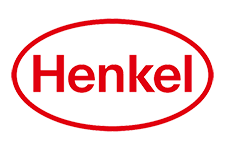The Importance of Driving a Circular Economy in the 'New Normal' (Commentary)
By Jillaine Dellis | Head of Sustainability, North America- Consumer Products, Henkel

Originally published by Waste 360
It’s clear that the COVID-19 pandemic is wreaking long-term havoc on our communities and economies throughout the globe, but what about our environment? As we observe this year’s America Recycles Day — a Keep America Beautiful initiative dedicated to promoting and celebrating recycling in the U.S. — we should reflect on the environmental impact of the ongoing pandemic and the importance of creating a circular economy.
Leading sustainability and recycling organizations like Keep America Beautiful have recently shed light on this topic, particularly around the challenges that the pandemic presents for plastic waste reduction and recycling. For example, one trending issue is a global uptick in litter as more people wear personal protective equipment (PPE) to prevent the spread of the virus. This increase has created concern among many national and local organizations, including some local governments that have chosen to institute fines for improperly discarding PPE.
Lockdowns associated with the pandemic have also led to temporary or permanent halts on recycling facilities making it even more difficult to recycle PPE and other plastics throughout the U.S. However, TerraCycle, another leading recycling organization, has expanded their Zero Waste Box program to include a PPE box option, that allows consumers to safely recycle used safety and protective gear, including safety masks and gloves from their homes.
Programs like these, which focus on eliminating waste and encouraging the continual use of materials, underline the larger need for driving a circular economy. In fact, one of the biggest concerns with packaging is that it becomes waste as soon as a consumer finishes using the product. This makes it even more critical for companies to make packaging easier to recycle and use more recycled material in new packaging to ensure we keep these materials in the value chain for longer. For example, as a major manufacturer of consumer goods across laundry, home care, hair and beauty in North America, Henkel recognizes its responsibility and is committed to sourcing sustainable materials and creating smart packaging designs. Our aim is that 100% of Henkel’s packaging will be recyclable or reusable* by 2025.
However, to ensure this model is successful, it’s critical for companies to collaborate across the entire value chain – from raw materials to disposal – to find effective solutions that can be used at each point in the product lifecycle. These partnerships also allow us to utilize the resources and knowledge of many experts and organizations to bring similar models to scale across various industries. At Henkel, for example, we are currently engaged in partnerships and initiatives like the U.S. Plastics Pact that help drive cross-sector goals toward a circular economy and TerraCycle that focus on supporting recycling at the end of the value chain.
We believe that these types of initiatives pave a critical path toward not only driving innovation in plastic waste reduction, but also finding effective solutions that can be developed on a larger and longer-term scale. But progress toward a circular economy, particularly as we continue to adjust to our ‘new normal,’ and ultimately recover from the pandemic, will only be possible if we all join forces.
*Excluding adhesive products where residue may affect recyclability or pollute recycling streams

